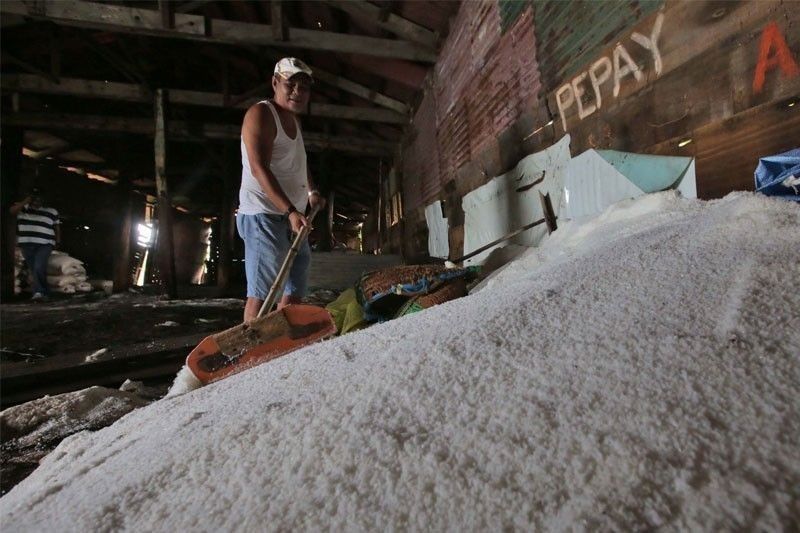Salt imports decline as local output improves

MANILA, Philippines — The country’s salt imports decreased to 84 percent of total requirements last year from 90 percent in 2022 as local production improved, a ranking official of the Bureau of Fisheries and Aquatic Resources said.
BFAR spokesperson Nazario Briguera said Republic Act 11985 or the Philippine Salt Industry Development Act signed by President Marcos on March 11 would help revitalize the salt industry.
“After the government allocated funds (for the salt industry), our salt imports started to go down. It is now down to 84 percent and our local production increased to 16 percent. This shows that if we focus, the local salt production in the country will really go up,” Briguera said.
Briguera said salt-producing areas in the country include Pangasinan, Mindoro, Cebu, Quezon and Marinduque.
“The potential of our salt industry is big as we have a long shoreline and salt comes from seawater,” he said.
According to Briguera, the local salt industry has been neglected for many years, resulting in the country’s dependence on importation.
“For a long time, our salt industry was neglected as first, there is no law on the agency tasked to handle the industry,” Briguera added.
He said the implementation of the iodization of salt also became a hindrance for small-scale enterprises in developing the industry.
“The newly signed Salt Industry Development Act defines the agency tasked to revitalize the salt industry to lessen our dependence on importation,” Briguera said.
Under the law, BFAR is the lead agency in reviving the salt industry.
“It is important to note that while there is nothing wrong with the campaign of the Department of Health to use iodized salt, it is not comprehensive as it affects small scale,” he said.
Briguera said consultations are being made for the drafting of the implementing rules and regulations (IRR) of the new law.
“We are hoping that at the very soonest time possible, the IRR will be crafted,” he said.
The 23-page RA 11985 seeks to revitalize what legislators call a “dying” industry and achieve self-sufficiency by equipping salt farmers with appropriate technology and financial, production and marketing support.
- Latest
- Trending
































